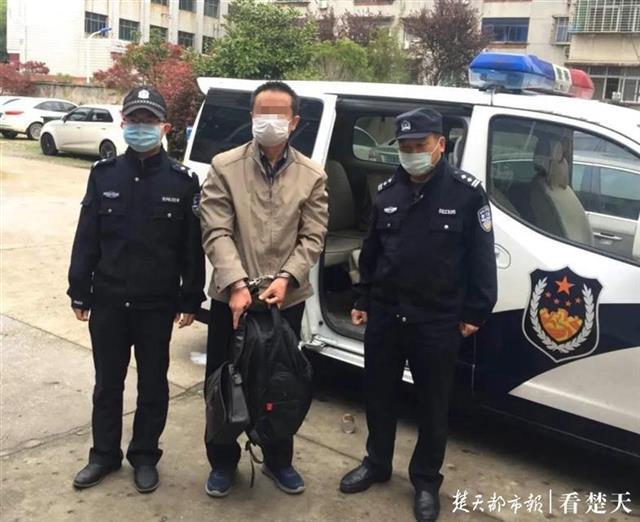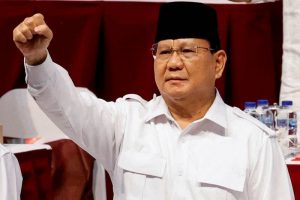(ATF) Public security officials arrested many people on the weekend after a protest turned into a minor riot at Hanchuan, a city an hour west of Wuhan. Police admitted later that a large crowd of people caused a ‘disturbance of public order’ in Hubei province, the center of China’s coronavirus outbreak.
The melee at Ouyada Trade City in Hanchuan, 67km west of Wuhan, ended with many people detained for breaking a public ordnance under the coronavirus epidemic provisions, while Public Security officials in Hanchuan arrested “five leading criminals who incited provocations”. They were held in custody on Sunday April 5.
The defendants were reportedly leading crowds that pulled down banners and shouted slogans – serious violations of regulations imposed under the first level of the coronavirus response – and are accused of “causing adverse social impact.”
No information given as to why the crowd were protesting in the trade city.
Outbreak in Suifenhe
Meanwhile, Huangqiu reported more coronavirus outbreaks in Suifenhe, a small town on the border of Heilongjiang with a population of less than 70,000.
On Monday April 6, the Heilongjiang Provincial Health and Health Commission reported 20 new “imported” and confirmed cases – all Chinese nationals who had travelled from Russia and entered the Suifenhe port. This figure later rose to a total of 42 cases. The city of Suifenhe is near the border with Russia.
Official sources said the first batch of support teams – 34 staff – were sent to Suifenhe City People’s Hospital on April 5. The team brought more than 330,000 yuan of medical supplies such as protective clothing, N95 masks, disinfection materials, blood analyzers and UV lamps.
Amid other concerns, many countries have been complaining about the quality of medical equipment being bought from China. So the Ministry of Commerce said last Friday that it and officials from the Ministry of Commerce, Customs and the State Food and Drug Administration would conduct quality inspections of products from registered suppliers.
Approval now needed for exports of medical equipment
The issued an Announcement on the Orderly Development of Export of Medical Materials (No. 2020 “No. 5”) requiring Covid-19 test kits, medical masks, protective clothing, ventilators, infra-red thermometers and other five types of products must get relevant qualifications of the national drug regulatory authority and meet the quality standards of importing countries or regions.
The heads of the relevant departments expressed hope that foreign purchasers would choose suppliers of products registered with China’s drug regulatory authority, and conduct quality inspections before using the products.
The State Food and Drug Administration said it had approved 25 new coronavirus detection reagents, including 17 nucleic acid detection reagents and eight antibody detection reagents. The SFDA and provincial drug regulatory authorities have approved 67 domestic ventilators, 302 types of domestic medical protective clothing with product registration certificates and 153 domestic medical protective masks.
According to statistics from relevant departments, some 2.77 billion pieces of major prevention and control materials, valued at 6.29 billion yuan (US$887 million), had been inspected and released nationwide since March 1.
Restrictions for people heading to Beijing
Separately, due to fears of new infection, Beijing now requires all elderly visitors and people from other provinces to undergo 14 days in isolation. This applies to people visiting Beijing from other parts of China for medical treatment.
Beijing is also offering other services, but these must be strictly online, Xinhua said. In order to meet the needs of “foreign” patients, medical institutions in the city will use Internet technology and various platforms to provide remote consultations and medical support services for regional medical institutions and patients.
Warning over disease control scammers
Due to mounting cases of disorder, fraud and other problems officials overseeing the old “public inspection law” are now enforcing the “Disorder control center”, to avoid confusion caused by fraudsters.
Scammers have been masquerading as the Beijing Center for Disease Control and Prevention and anti-fraud police, accusing people of selling fake masks and other medical equipment. They then asked call recipients to transfer funds as fines. Even people not involved in such actions were intimidated into paying money.
Su Xingbo, a squadron leader at Beijing Municipal Public Security Bureau’s Criminal Investigation Team’s focused on telecom fraud, said public security organs had to be continually enhanced to prevent such scams, because the criminals were also “advancing with the times”.
Su Xingbo reminded people that if they receive calls from people claiming to be from the “Diseases control center” or public prosecutors and are informed of illegal activities, they must be vigilant. They must protect personal information such as bankcard passwords and SMS verification codes.
Help for Hubei Province
Meanwhile, Taobao recently announced that Hubei Province will be the key province for agricultural and other products and food sales this year, and 1.2 million tons of Hubei agricultural products will be sold throughout the year on the e-commerce website owned by Alibaba, which is similar to Ebay.com.
Hubei is an important production base for people growing fruit, vegetables, meat, eggs and aquatic products in China. Since the outbreak, it has been hard to sell agricultural products in Hubei because of the collapse of logistical supply chains and labour. The Ministry of Agriculture and Rural Affairs recently organized two meetings to boost the production and marketing of agricultural products and to encourage people to buy goods from Hubei. Taobao is China’s largest online platform selling agricultural products and says it wants to help local farmers get their products out to other markets.
On April 1, Alibaba’s Digital Agriculture Division also bought crayfish from Hubei worth 1 billion yuan, which was the largest purchase of Hubei agricultural products since the New Year. But Alibaba bought many goods in Hubei, including specialties such as oranges.
Wan Yong, deputy governor of Hubei, said the province is known as the “hometown of fish and rice.”
Alibaba appears to be playing an increasing role in supporting government initiatives. It also developed an app which identified people suspected of having the coronavirus, which was used all around the country.
























